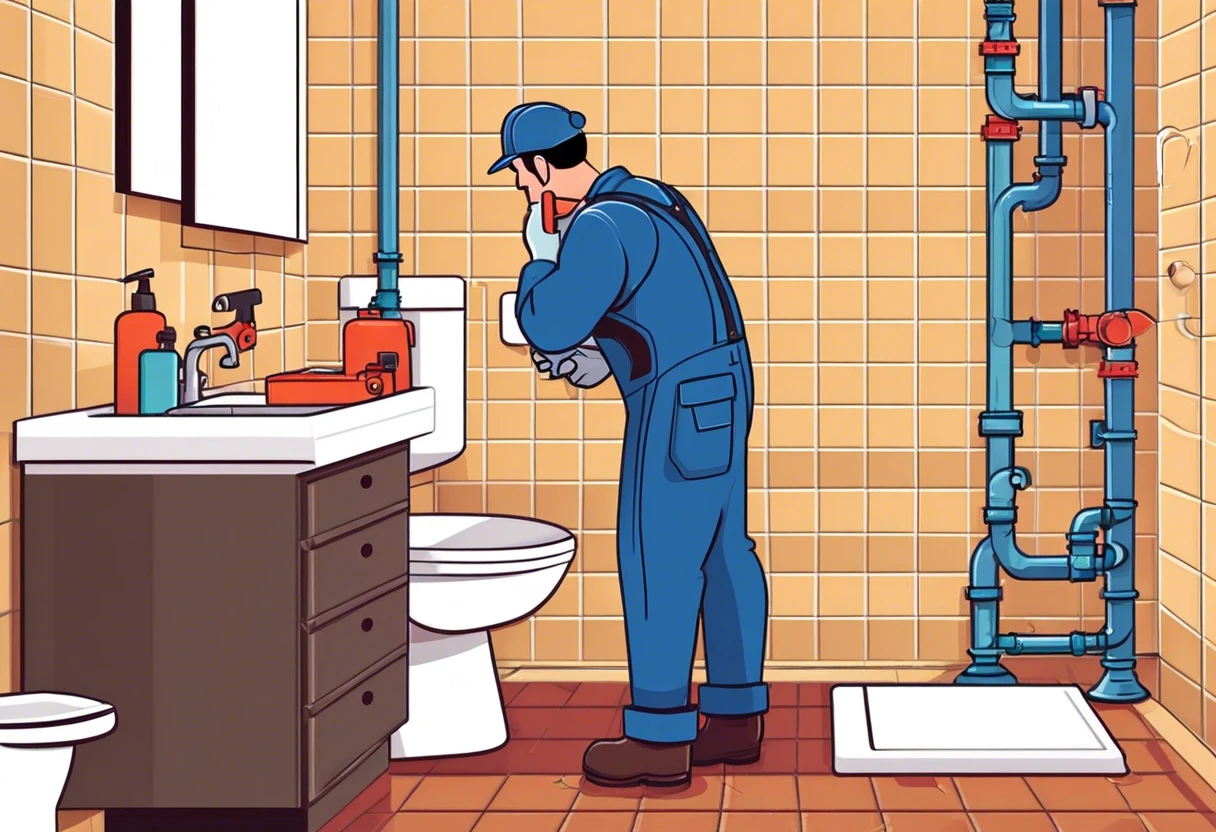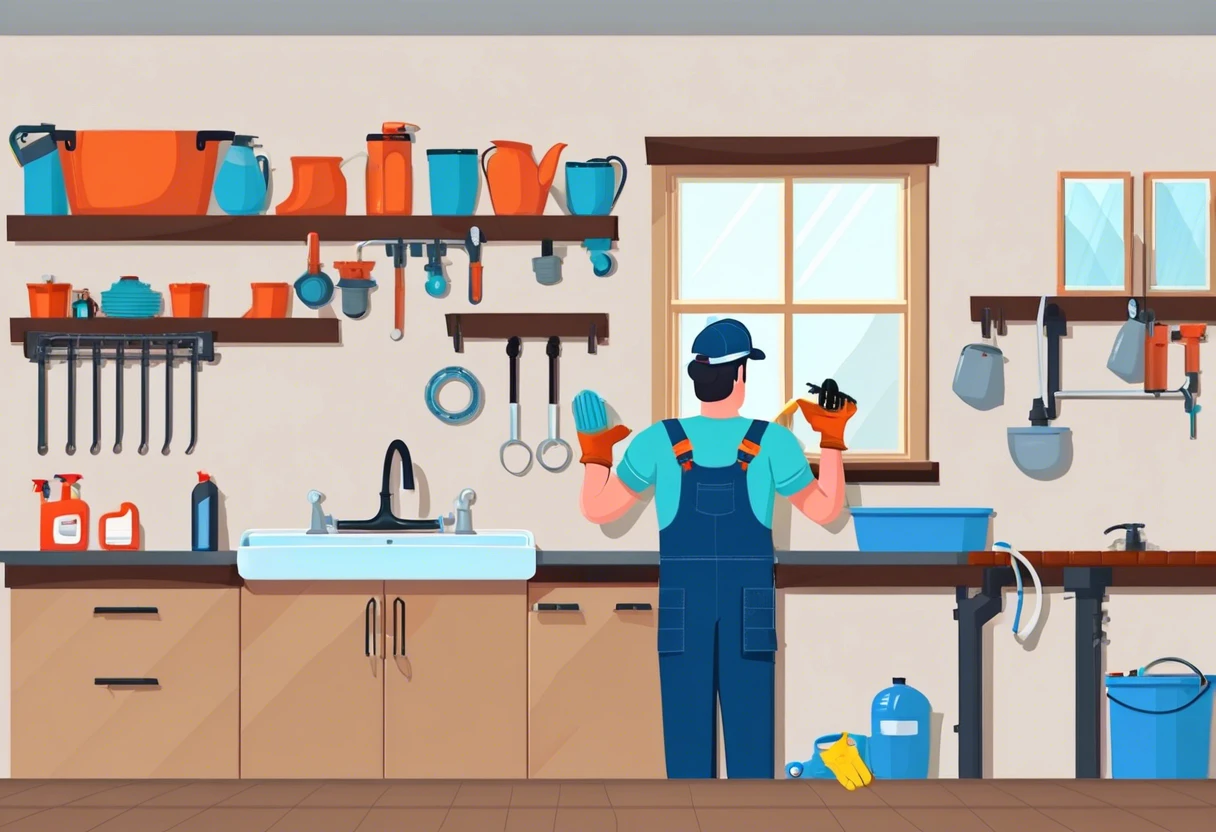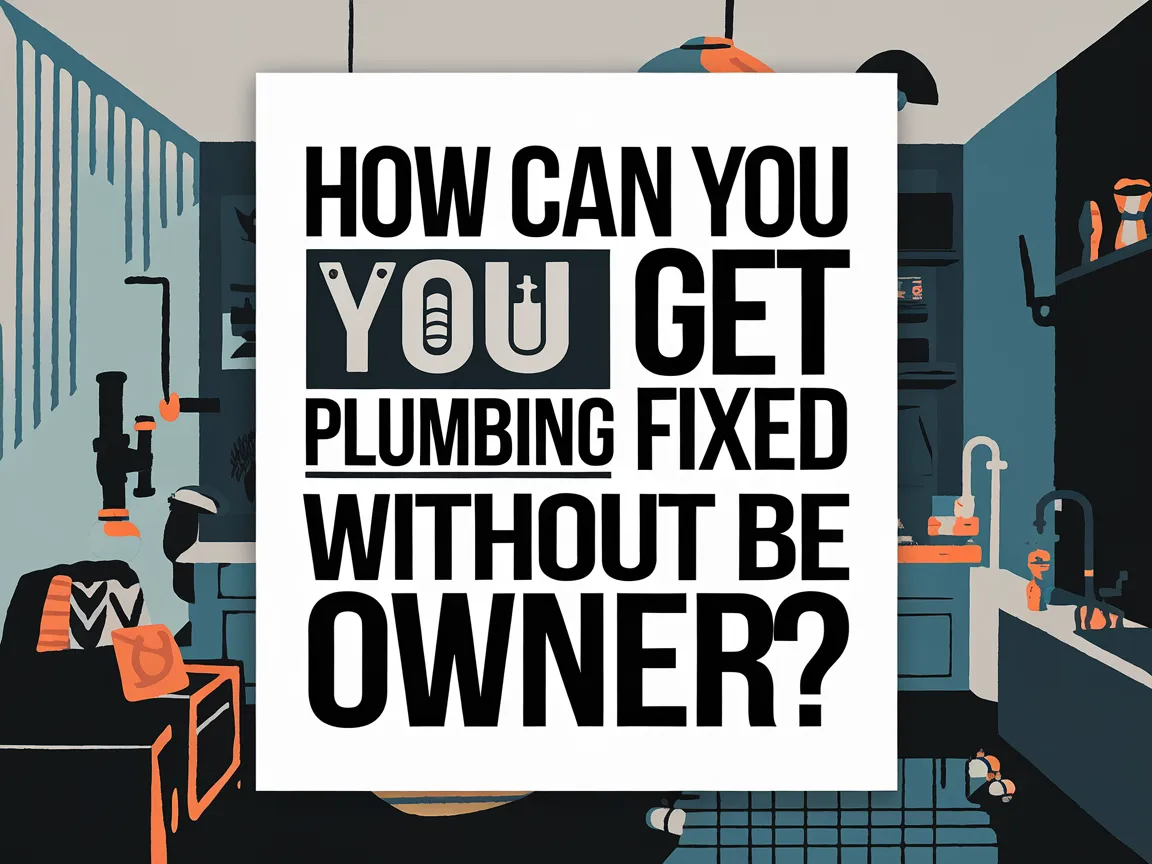Do I Need a Plumbing License? Key Insights for Anaheim Hills Residents
Published on: March 21, 2025 | Last Updated: March 21, 2025
Written By: anaheimplumbers
Hey there! Are you wondering whether you need a plumbing license to tackle your DIY projects? It’s super common to have that question, especially if you’re a homeowner in beautiful Anaheim Hills, where everything from leaky faucets to full bathroom remodels can pop up unexpectedly.
I totally get it, and I’m here to help you navigate through the ins and outs of plumbing licenses. With over a decade of experience in plumbing right here in the OC, I’ve seen it all. From simple repairs to complete installations, I understand the importance of knowing when you should roll up your sleeves and when it’s best to call in a pro.
In this article, I’ll walk you through several key points, such as the specific requirements for getting a plumbing license, common questions folks have, and even the costs involved. You’ll also discover when it’s wise to seek professional help and find answers to the top FAQs about plumbing licenses. So, let’s dive in and get you the info you need!
Page Contents
- 1 Do I Need a Plumbing License?
- 2 Key Takeaways About Plumbing Licensing
- 3 Understanding Plumbing License Requirements and Regulations
- 4 The Impact of Local Plumbing Regulations in Anaheim Hills
- 5 What Happens if You Don’t Follow Licensing Regulations?
- 6 Maintaining Your Plumbing License
- 7 Common Questions Related to Plumbing Licensing
- 8 Understanding the Costs Associated With Obtaining a Plumbing License
- 9 Frequently Asked Questions About Plumbing Licenses
- 10 Final Thoughts on Plumbing Licensing Requirements
- 11 Additional Resources for You:
Do I Need a Plumbing License?
Yes, you typically need a plumbing license to work legally in most situations, especially when taking on commercial jobs or larger projects. In California, the process includes passing a test and meeting specific training requirements. Always consider local laws in Anaheim Hills for more specific guidelines.
Key Takeaways About Plumbing Licensing
After diving into this article, you’ll gain a solid understanding of plumbing licensing.
- Determining if you really need a plumbing license for your projects.
- Understanding the regulations and requirements specific to your area.
- Knowing what costs are involved in obtaining a plumbing license.
- Recognizing when it’s best to call in a professional for plumbing issues.
Understanding Plumbing License Requirements and Regulations
What is a Plumbing License?
A plumbing license is a state-issued certification that allows individuals to perform plumbing work legally. Here in California, this involves passing exams and proving that you possess the necessary skills to handle various plumbing tasks safely and effectively. This ensures that plumbers are well-versed in managing pipes, fixtures, and water supply systems.
Why is a Plumbing License Important?
Having a plumbing license isn’t merely a bureaucratic formality; it embodies a commitment to competence and professionalism. This certification validates your extensive training and understanding of plumbing codes, safety guidelines, and local regulations. In Anaheim Hills and its surrounding areas, homeowners tend to favor licensed plumbers, as this provides them with the reassurance that their plumbing systems are being cared for by qualified professionals. If you’re considering undertaking excavation work, it’s essential to secure the necessary permit. For a comprehensive guide on how to navigate the permit process, you can review how to get a plumbing permit for excavation in Anaheim Hills to ensure adherence to local regulations.
How Licensing Protects Consumers
By hiring a licensed plumber, you not only safeguard yourself from substandard workmanship but also avert the potential for expensive repairs down the line. California’s rigorous licensing process guarantees that all plumbing installations and repairs adhere to safety codes, providing peace of mind. From my own experience, I have seen how inadequate plumbing can lead to mold, water damage, and a myriad of avoidable headaches. Given the significant risks associated with improper plumbing practices, it is crucial for homeowners to understand whether plumbing is dangerous.
Now, you might wonder, “Do I need a plumbing license?” This question is vital if you’re considering DIY plumbing work. From personal experience, starting with simple tasks is manageable, but for significant work like installing new fixtures or working on pipes, obtaining a license is essential. It not only fulfills legal requirements but also provides peace of mind.
Consider the nature of your project. For instance, here in the OC, minor repairs like fixing a leaky faucet may not necessitate a license. However, adding a new bathroom requires permits and adherence to local codes. It’s crucial to acknowledge the complexities involved in plumbing systems. Whether you reside in Anaheim Hills or elsewhere in California, it’s evident that doing things correctly the first time is vital.
Additionally, knowing the factors surrounding licensing increases your understanding of plumbing practices. The National Standard Plumbing Code provides a regulatory framework that many states follow, but California has specific rules that differ. If you’ve ever dealt with a broken pipe on a scorching day, the importance of staying licensed becomes crystal clear—failing to do so can lead to punishing fines for unlicensed work.
Reflecting on my earlier days, I assisted a new handyman who thought he could bypass licensing to save money. But, as fate would have it, the city caught him, resulting in a $1,000 fine for not being licensed. That experience taught me—and him—how crucial it is to adhere to regulations to avoid significant financial consequences.
Now that we’ve discussed the general requirements and regulations for obtaining a plumbing license, let us examine the influence of local plumbing regulations in Anaheim Hills.
Also See: How Much Does Plumbing Cost for a New House in Anaheim Hills, CA?

The Impact of Local Plumbing Regulations in Anaheim Hills
Understanding local plumbing regulations is essential for anyone considering plumbing work in Anaheim Hills.
California vs. Local Regulations
California has its own set of plumbing regulations, but local municipalities like Anaheim Hills may have additional rules that apply. Here’s a simplified comparison:
| Type of Regulation | California State Guidelines | Anaheim Hills Specifics |
|---|---|---|
| License Requirements | Must obtain a state plumbing license | Additional local permits may be required |
| Inspection Procedures | Statewide inspection protocols | Local health and safety inspections may apply |
| Code Compliance | Adheres to the California Plumbing Code | Respects additional local amendments that can vary |
Why Local Knowledge Matters
Having a plumber who is well-versed in the specific regulations of Anaheim Hills can save you both time and potential legal headaches. From my experience, many homeowners tend to underestimate the importance of adhering to local codes, which often leads to rework and unforeseen expenses. If you’re contemplating starting your own plumbing business in this area, it’s essential to be aware of the costs you may encounter. Gaining this understanding can be pivotal for your success. To learn more about the expenses associated with launching your new venture, I recommend checking out the cost of starting a plumbing business. It’s indeed a frustrating experience to discover that plumbing tasks must be redone due to a code violation, and being informed can help you avoid such stressful situations.
Now that we’ve explored the significance of local plumbing regulations in Anaheim Hills, let’s discuss the consequences of non-compliance with licensing rules.
What Happens if You Don’t Follow Licensing Regulations?
Ignoring plumbing licensing regulations can have serious consequences.
Consequences of Violating Licensing Laws
- Fines: Expect fines ranging from hundreds to thousands of dollars.
- Legal Issues: Unlicensed plumbing work can lead to lawsuits if problems arise.
- Insurance Problems: Your home insurance might not cover damages resulting from unlicensed work.
- Increased Liability: You bear personal responsibility for any damage or injuries prompted by faulty work.
A Personal Experience
From my own experience, I recall a scenario where a homeowner believed they could save money by hiring an unlicensed individual. Unfortunately, this DIY decision resulted in a water main break, requiring costly repairs and a significant fine. They quickly learned the hard way that cutting corners is rarely worth it!
Next, let’s take a closer look at how to maintain your plumbing license.
Maintaining Your Plumbing License
Once you obtain your plumbing license, it’s crucial to keep it current and valid.
Renewal and Continuing Education
California mandates the renewal of plumbing licenses every few years, which generally includes:
- Submitting renewal applications by the due date.
- Paying the renewal fee.
- Participating in continuing education courses to remain updated on new practices and technologies.
In my plumbing journey, I learned that staying informed not only adheres to regulations but enhances your value in the field. While it can feel burdensome at times, ongoing education is essential for growth in this industry.
Now that we’ve covered the essentials of maintaining your plumbing license, let’s shift our focus to common questions regarding plumbing licensing.

Common Questions Related to Plumbing Licensing
This section addresses critical plumbing licensing questions you’ll encounter as a DIY enthusiast or prospective plumber.
Do I Need a Plumbing License if I Have Experience?
Experience alone doesn’t exempt you from needing a license. In Anaheim Hills, and throughout California, proper credentials are required regardless of your hands-on skills. When I first started, I learned that being licensed is crucial not just for regulation but for trustworthiness and safety.
How to Get a Plumbing License in California
To acquire a plumbing license in California, you must complete training, log specific work hours alongside a licensed plumber, and pass an examination. The process requires time and dedication, so don’t rush it; preparing adequately pays off!
What States Do Not Require a Plumbing License?
Some states, such as Alaska and Vermont, don’t require a license for basic plumbing work. However, obtaining a license can be beneficial, as it protects you from potential complications down the road. Cutting corners is rarely wise; I’ve witnessed friends face significant issues due to non-compliance with local regulations. If you’re contemplating a career in plumbing, you might be curious about the difficulties associated with learning the trade. Gaining insight into the challenges of mastering plumbing can provide you with clarity on what to expect as you embark on this journey. For a more in-depth understanding, you can explore the challenges of a plumbing career when you start your journey.
Do I Need a Plumbing License for General Plumbing Work?
In California, yes, you typically need a license for general plumbing work. As a professional in the OC, I always have my license ready to ensure everything is above board.
What Are the Penalties for Plumbing Without a License?
Penalties vary but can include substantial fines. In my early days, I faced tickets for minor regional violations. It’s never pleasant when you get called out by local authorities for unlicensed work!
What Plumbing Work Can Be Done Without a License?
Minor repairs like unclogging drains or changing faucets may not always require a license. However, I advise proceeding with caution, as even less complex jobs carry certain risks. As the saying goes, a little knowledge is powerful, but you must not overstep your bounds!
What Plumbing Work Can Be Done Without a License in Illinois?
In Illinois, non-licensed work can also extend to minor fixtures. However, serious plumbing tasks, such as replacing main lines, necessitate a license. A neighbor of mine learned this the hard way after a DIY project spiraled out of control, drawing unwanted attention from local inspectors.
Can I Transfer My Plumbing License to Another State?
Yes, it’s possible to transfer your plumbing license, but it requires specific paperwork and may involve retesting. In California, you can often apply for reciprocity if both states’ licensing programs align. Always double-check with relevant authorities to avoid complications.
Understanding the Costs Associated With Obtaining a Plumbing License
In California, the costs associated with obtaining a plumbing license can vary significantly, typically ranging from $200 to over $1,500. It’s important to consider unexpected expenses, such as study materials or potential exam retakes, which can arise during the process. Therefore, I recommend budgeting closer to $1,000 to comfortably accommodate all necessary requirements. Furthermore, if you’re looking at the broader financial implications of plumbing, you should also investigate how much new plumbing costs, as this can greatly impact your overall budget. For more detailed insights, you can visit the site that discusses how much new plumbing costs.
Having spent years in the plumbing industry in Anaheim Hills, I can say that it usually takes about two years of dedicated training before one becomes eligible for a plumbing license. I recall incurring costs of approximately $300 for exams in the past, but with the implementation of new regulations in recent years, those fees have notably increased. This heightened complexity can sometimes lead to confusion, especially among tenants who might be unsure of their responsibilities regarding plumbing issues. If you find yourself questioning whether renters are responsible for plumbing repairs, it would be beneficial to explore the specifics of these situations at renters and plumbing responsibilities.
Cost Breakdown for Plumbing License
| Cost Item | Low Estimate | High Estimate |
|---|---|---|
| Application Fee | $200 | $300 |
| Exam Fee | $50 | $150 |
| Study Materials | $100 | $400 |
| Retake Fees (If Needed) | $100 | $200 |
| Total Estimated Cost | $450 | $1,250 |
Frequently Asked Questions About Plumbing Licenses
To help clarify the significance of plumbing licenses and understand their nuances, let’s examine some common questions.
What Happens if You Do Plumbing Without a License?
Working as a plumber without a license can lead to hefty fines and legal complications. In California, performing plumbing tasks without the proper license can result in penalties or code violations.
Why Do You Need a Licensed Plumber?
Hiring a licensed plumber not only guarantees that the work adheres to local codes and regulations but also ensures the job is executed with the necessary expertise and safety. Licensed plumbers have the training required to handle complex plumbing tasks effectively. However, there are some plumbing jobs that you may be able to tackle on your own, provided you understand your limits and are aware of the local laws. To learn more about which plumbing tasks can be performed without a license, you can explore what plumbing work can be done.
Can a Handyman Do Plumbing Work Without a License?
No, a handyman cannot legally perform plumbing work in California without a license. Only licensed plumbers are authorized to undertake specific plumbing tasks, which ensures adherence to safety standards and regulations. If you are contemplating starting your own venture in the plumbing industry, you may wonder whether it’s possible to launch a plumbing business without a license. Delving into this inquiry can shed light on the essential regulations to consider before embarking on your entrepreneurial journey. For more details on the requirements and options available, you can explore this helpful resource.
Do I Need a License to Do Minor Plumbing Repairs?
In most instances, yes, a license is required, but this largely depends on the nature of the work. While minor plumbing repairs may not always necessitate a license, it’s essential to check local regulations to ensure compliance. When bidding on plumbing jobs, submitting accurate estimates is crucial, as this can significantly influence your success rate. To better understand the specifics of this process, I recommend reviewing how to bid plumbing jobs—a key step in your planning.
What Types Of Plumbing Work Require a License?
All significant plumbing work, such as installing water heaters, relocating pipes, and conducting sewer renovations, necessitates a licensed professional. These tasks demand specialized knowledge to avert serious complications. Interestingly, your plumbing system can still function effectively even during power outages, which is a vital consideration in emergencies. To explore how plumbing continues to operate without electricity, take a look at how plumbing works without power.
How Can I Verify a Plumber’s License?
To ensure you’re hiring a qualified plumbing professional, it’s essential to verify a plumber’s license. You can do this by visiting the California Contractors State License Board’s website, where you can check their license number quickly and easily. If you’re thinking about joining this rewarding trade, you may be interested in learning more about how to become a plumber in Anaheim Hills. This resource outlines the necessary steps and requirements for aspiring plumbers in the area, making your journey into the plumbing profession that much smoother. For specific details and guidance, be sure to check out how to become a plumber.
Are There Different Types Of Plumbing Licenses?
Yes, there are various plumbing licenses that cater to different specializations. In California, for instance, you can find categories such as general plumbing contractor licenses and specialized plumbing contractor licenses. Each type of license has its own set of requirements and processing times that applicants must adhere to. If you’re curious about the specific timeframe required to obtain a plumbing license in California, you can explore the details further at how long it takes to get a plumbing license.
Can I Work As a Plumber Without Being Licensed in California?
No, working as a plumber in California without the appropriate licensing is illegal. Licensing is mandated to ensure public safety and adherence to regulations.
Final Thoughts on Plumbing Licensing Requirements
In conclusion, we covered essential points regarding the need for a plumbing license, including relevant requirements, regulations, common inquiries, costs, and when to seek professional assistance.
So, if you’re asking, “do I need a plumbing license?” the answer generally hinges on your specific projects and state regulations. Don’t hesitate to check out our services at Anaheim Hills Plumbers, where you can use our chat function for a quick estimate and connect with licensed plumbing professionals.
Additional Resources for You:
- Cauldwell, R. (2017). Plumbing Complete: Expert Advice from Start to Finish. Cool Springs Press.
- Plumbing License Requirements for All 50 States
- What Plumbing Work Requires a License in Houston?
- r/Plumbing on Reddit: What am I allowed to do without a license?
- I want to open a plumbing company, do I need a license to open it since I’m not the one that will be working in the field? – Quora

